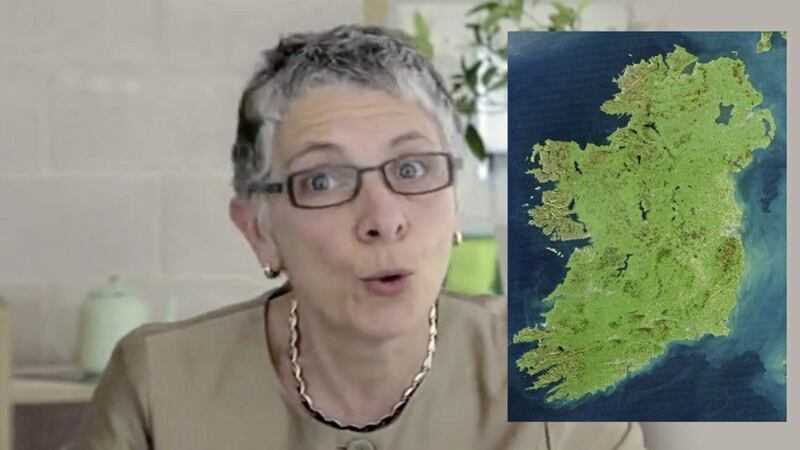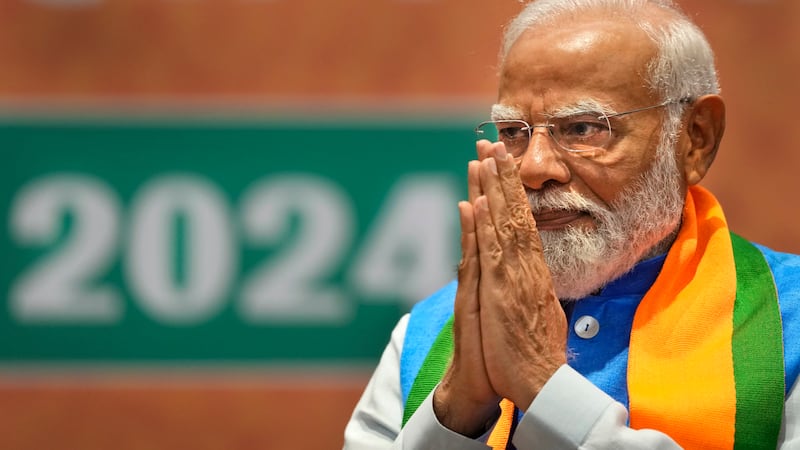A BRITISH columnist has been ridiculed after suggesting that Ireland is not a proper nation because it's too young.
In a comment piece in the London-based Times newspaper yesterday, Melanie Phillips wrote about efforts by Irish republicans and Scottish nationalists to leave the UK.
Under the headline 'Britain is the authentic nation in this battle', she described Scotland and Northern Ireland as "the most troublesome bits of the United Kingdom".
Melanie Phillips making the *most* staggeringly awful political statement in what is a crowded field! pic.twitter.com/4iovqkkmUg
— Adi Peltz (@adi_peltz) March 7, 2017
She said that unionists in Northern Ireland are "not British", adding: "They're the bit that got tacked on to Great Britain to make the UK.
She continued: "Does that mean Westminster should tear up the Good Friday Agreement and bid farewell to Northern Ireland? No, because it has an obligation to the unionists; and because the claim to unite Ireland is tenuous since Ireland itself has a tenuous claim to nationhood, having seceded from Britain as the Irish Free State in 1922."
Her comments about Ireland sparked reaction online with many criticising the article on Twitter.
Dear Newspapers, I'm available to write ill-informed, fake-historical, clickbaity codswallop for half of whatever Melanie Phillips charges.
— Craig Smith (@Smicht) March 7, 2017
Daniel Mulhall, Irish ambassador to the UK, wrote: "As Ambassador I cannot ignore [Melanie Phillips's] outlandish claim [in the Times] that Irish nationhood is 'tenuous'. 100 years of independence.
"Irish nationhood based on strong sense of identity, distinctive culture and shared values and interests. Nothing 'tenuous'."
Adrianne Peltz tweeted: "Melanie Phillips making the most staggeringly awful political statement in what is a crowded field!"
Another Twitter user joked: "Melanie Phillips herself has a tenuous claim to existence, having been born only in 1951."
Between Liam Fox yesterday and Melanie Phillips today, it's clear the entire Brexit delusion has its roots in jingoistic self-mythologising.
— Chris Brookmyre (@cbrookmyre) March 7, 2017
Europe alone has seen the creation of scores of newly sovereign countries over the past century.
Among other countries to gain their independence after the Republic is India, the world's largest democracy which got its freedom from Britain in 1947.
In Africa, dozens of countries gained their independence in the 20th century, including Kenya, Egypt, Sudan, Nigeria and Algeria.
The United Kingdom itself was only created in 1801 following the the Act of Union between Britain and Ireland.
In the article, Ms Phillips also described the EU as an "artificial construct" as opposed to the "authentic unitary nation" that is Britain.
She claimed that "Scottish nationalism and Irish republicanism are cultural phenomena rooted in romanticism and myth and hatred of the other in the form of the English or the Protestants".
The column concludes: "Faced with the contemporary resurgence of regional or tribal uprisings, it's the ancient British Isles that must hold itself together to take its place once again as a sovereign nation in the wider world."
Harry Potter author JK Rowling also responded to the article on Twitter.
Re-wording the column, she wrote: "Scotland is the nation with the right to rule itself. It is the UK which is the artificial construct, the imagined community that falsely claims for itself the hollow appurtenances of a nation.
"Faced with the contemporary resurgence of far right populism, it is the ancient land of Scotland that must regain its independence to take its place once again as a sovereign nation in the wider world."
Ms Phillips brushed off the Twitter backlash, telling one online detractor: "Off you go, chummy".



